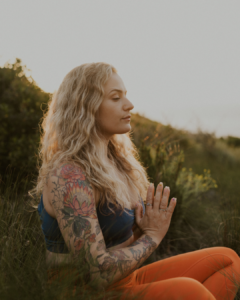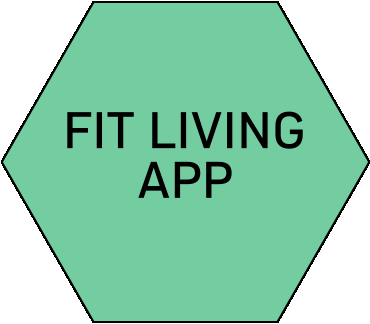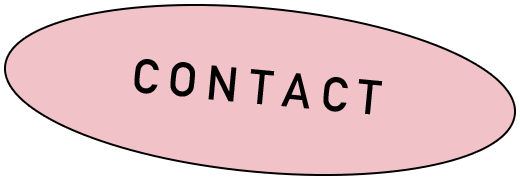
When we are anxious, it can feel like the pressure of absolute everything is on us. It’s overwhelming, a crushing pressure and can at times feel like the world is conspiring against us. As though we are not designed to exist in a world that was made for people who feel panicked, stressed, overwhelmed and exhausted all the time. It can be debilitating, and this can result in a domino effect of anxiety cascading into many areas of our lives, affecting everything from work productivity to personal relationships, to our own relationships with ourselves. It can feel impossible to overcome. But what exactly causes anxiety? And, more importantly, how can we deal with its symptoms?
I have found over the years that learning more about anxiety, creating a better understanding and learning to really lean into my triggers and communicate with my anxiety has helped me know what I need and how to work with it.
First, let's talk about the physiological response that happens during an anxiety attack. When the body senses danger, the fight or flight response kicks in, releasing adrenaline and cortisol into the system. This can manifest in a number of ways, such as rapid breathing, heart palpitations, and sweating. These symptoms can be terrifying, but they're a natural response to stress.
So, how can we deal with these symptoms?
One solution is mindfulness. By focusing on the present moment, we can calm our minds and reduce anxiety. Meditation is a great way to cultivate mindfulness, and it's been shown to have a positive effect on mental health. The beautiful thing about mediation is that once you start to practice more regularly, you become better at noticing, at slipping into a heightened state of awareness and you can begin to move through life with your anxiety more mindfully.
I'm obviously a big fan of movement, it is a fantastic and affordable way to feel good! It's been said time and time again, and countless studies have proven that exercise is an effective tool to manage anxiety. One study conducted by the American Psychological Association in 2018 revealed that exercise is as effective as medication for treating mild to moderate depression and anxiety. Exercise has endless benefits, including reduced stress and anxiety.
Movement and breath work is also worth exploring - focused breathing techniques can help you regulate your heart rate and calm your mind, which is why yoga can be so transformative. Walking and running can also be very helpful in releasing built up tension, clearing your head and getting in touch with yourself on a deeper level. Even if you're not feeling particularly anxious, these activities are a great way to develop self-awareness and connect with your body and feelings, and create a space to process, feel empowered and change your mindset.
The ability to turn anxiety around with the simple act of getting some movement in, like going for a walk, should not be underestimated. Another study published in the Journal of Sport and Exercise Psychology in 2019 showed that exercise can reduce anxiety levels by up to 20%, which is no small dent. I like to break up my day with chunks of exercise or movement, getting into the habit of snacking on exercise keeps my headspace calm and helps me manage my mental health.
It's important to focus on and prioritise our mental wellbeing and health to support anxiety flare ups. This is especially true for those who are neuro-spicy, such as people with ADHD or Autism, as we tend to be more prone to anxiety.
To summarise the above, mindfulness exercises, movement practices, and other wellness solutions can help keep anxiety at bay.
In short, anxiety is a complex condition with a variety of causes and symptoms. But by practicing mindfulness, movement, and awareness, we can reduce its effects on our lives and improve our overall wellness. So take a deep breath, start scheduling time for the above in your life, and feel the benefits today!







